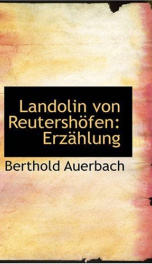Christian Gellert's Last Christmas

Three o'clock had just struck from the tower of St. Nicholas, Leipzig,on the afternoon of December 22d, 1768, when a man, wrapped in a looseovercoat, came out of the door of the University. His countenance wasexceedingly gentle, and on his features cheerfulness still lingered, forhe had been gazing upon a hundred cheerful faces; after him thronged atroop of students, who, holding back, allowed him to precede them: thepassengers in the streets saluted him, and some, students, whopressed forwards and hurried past him homewards, saluted him quitereverentially. He returned their salutations with a surprised and almostdeprecatory air, and yet he knew, and could not conceal from himself,that he was one of the best beloved, not only in the good city ofLeipzig, but in all lands far and wide.It was Christian Furchtegott Gellert, the Poet of Fables, Hymns, andLays, who was just leaving his college.When we read his "Lectures upon Morals," which were not printed untilafter his death, we obtain but a very incomplete idea of the great powerwith which they came immediately from Gellert's mouth. Indeed, it washis voice, and the touching manner in which he delivered his lectures,that made so deep an impression upon his hearers; and Rabener wasright when once he wrote to a friend, that "the philanthropic voice" ofGellert belonged to his words...... --This text refers to the Kindle Edition edition.
Info about the book
Author:
Series:
Unknown
ASIN:
B0082PAXF2
Rating:
4.5/5 (1)Your rating:
0/5
Languge:
English
Users who have this book
Users who want this book
What readers are saying
What do you think? Write your own comment on this book!
write a commentif you like Christian Gellert's Last Christmas try:
Do you want to read a book that interests you? It’s EASY!
Create an account and send a request for reading to other users on the Webpage of the book!




